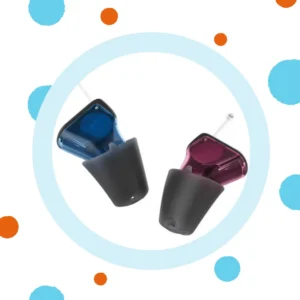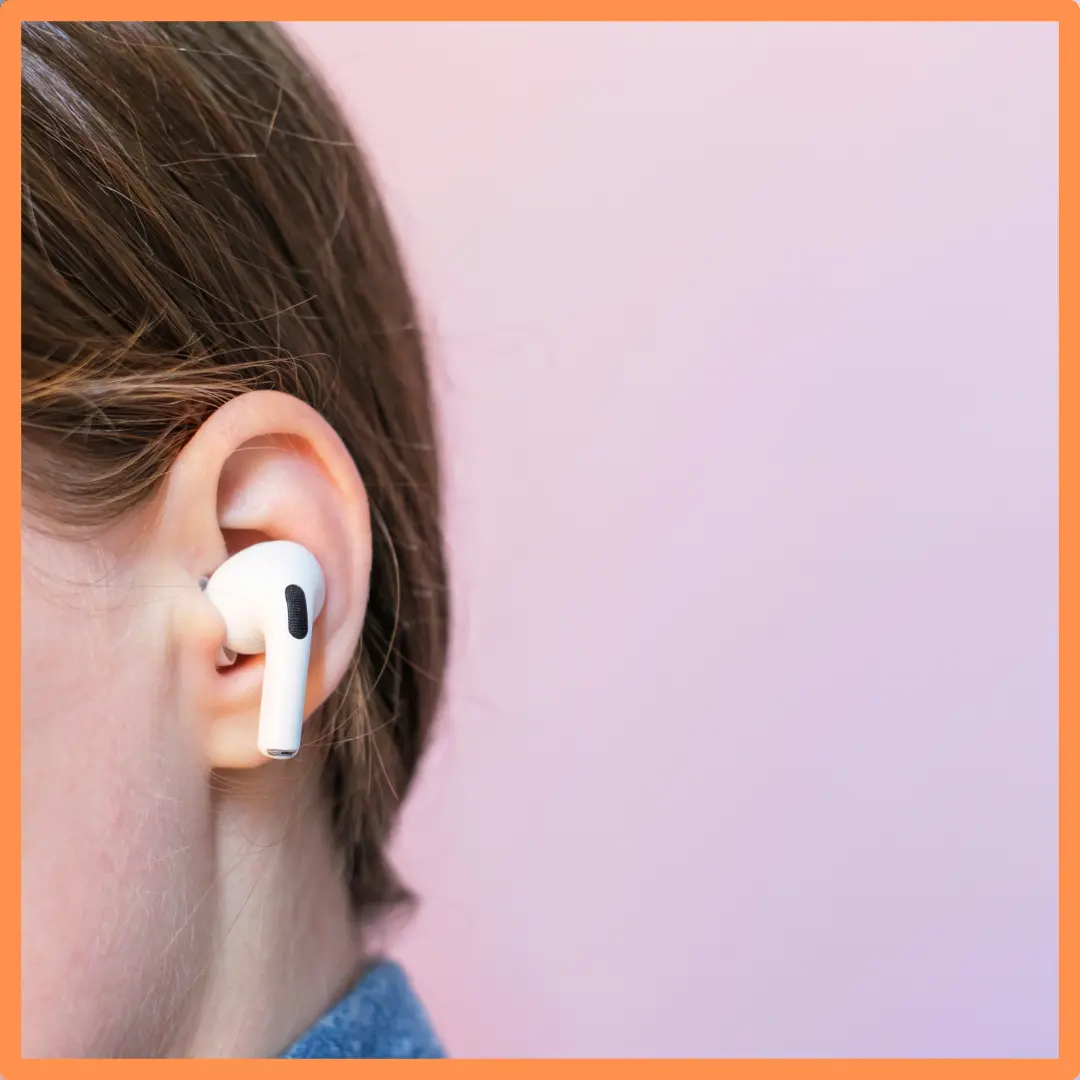
Best Hearing Aids for Small Ear Canals: Finding Your Perfect Fit
TL;DR: Small ear canals require specific hearing aid designs to ensure comfort and performance. The best options include completely-in-canal (CIC) models like the Signia Silk
Home » Can AirPods Replace Hearing Aids? Let’s Clear Up the Confusion!

Table of Contents
Toggle
With Apple’s latest update, the AirPods Pro 2 can now function as assistive hearing devices. It sounds like a win-win, right? You get stylish earbuds that also help with your hearing. But before you decide to skip hearing aids in favor of these trendy little devices, let’s explore whether AirPods can really replace hearing aids.
Apple’s AirPods Pro 2 include new features that aim to help people with mild hearing loss. These updates include a built-in hearing test that adjusts sound levels based on your results, noise cancellation, and hearing protection that reduces loud noises. For $249, this seems like a dream solution compared to traditional hearing aids, which can cost considerably more.
Plus, AirPods are already popular. There’s no stigma about wearing them in public, unlike hearing aids, which some people feel self-conscious about. AirPods are sleek, multi-functional, and seamlessly connect to other Apple devices. But the real question is:
At first glance, AirPods seem like an ideal option. Millions of people already use them daily, so adding hearing aid functionality seems like a no-brainer. The idea that you could get help with your hearing without looking like you’re wearing a hearing aid is appealing. People love the discreetness.
AirPods also make the hearing process easier for many. They provide a hearing test right through your iPhone, adjust the volume accordingly, and have features like Conversation Boost, which reduces background noise and amplifies the person talking in front of you. These are great for someone needing a little boost in certain situations, like in a noisy coffee shop or on a crowded bus.
Understand how treating hearing loss combats dementia.
While these features sound promising, AirPods can’t compete with the power and precision of actual hearing aids. Here’s why they fall short:

AirPods and OTC hearing aids serve a similar purpose: to help people with mild hearing loss at a lower price. But it seems that you get what you pay for when you’re dealing with anything but the mildest hearing loss. A 2023 American Speech-Language-Hearing Association (ASHA) study found that many users were dissatisfied with OTC hearing aids because they didn’t adequately address their hearing needs. Poor sound quality was another common complaint.
This dissatisfaction is reflected in high return rates. Eargo, an OTC hearing aid manufacturer, saw a 34% return rate in 2023, up from 24% in 2021. Some hearing centers have even reported return rates as high as 50% for OTC devices.
The same thing could happen to people relying on AirPods for hearing help. While they offer basic hearing amplification, they will fall short for many users, especially those with anything beyond mild hearing loss. Like OTC hearing aids, they lack the customization and support that prescription hearing aids offer.
While Apple’s AirPods Pro 2 and other OTC hearing aids offer convenience and a lower price tag, they can’t replace prescription hearing aids for most people. Here’s why:
Discover the best online hearing aids.
For people with mild hearing loss who want a discreet, multi-functional device, AirPods Pro 2 might help in some situations. But when it comes to most hearing loss and long-term hearing health, AirPods can’t replace prescription hearing aids. They’re more like a quick fix, not a long-term solution.
The bottom line is this: AirPods Pro 2 might be a great pair of earbuds, but they’re no substitute for professional hearing care. If you’re experiencing hearing loss, your best option is still to consult with an audiologist, who can provide you with a tailored solution that truly meets your needs.

Don’t settle for a quick fix when it comes to your hearing. Contact Injoy Hearing today for professional support and personalized hearing aid recommendations. Let’s find the best solution for your unique needs and get you hearing clearly again!

TL;DR: Small ear canals require specific hearing aid designs to ensure comfort and performance. The best options include completely-in-canal (CIC) models like the Signia Silk

Your audiologist just recommended rechargeable hearing aids. Great choice. But naturally, you want to know: how long before you’re shopping again? The answer splits into

You asked your spouse to repeat themselves. Again. The TV volume crept up another notch. Friends make jokes about your signs of hearing loss. These

You dropped serious money on Phonak hearing aids. Now you’re wondering how long they’ll actually work before you’re back at square one. Fair question. Hearing
To start your journey towards better hearing with confidence, Injoy is proud to offer a 45-day risk-free hearing aid trial. This allows you to experience the difference our hearing aids can make, ensuring they meet your expectations and fit your lifestyle perfectly.
Improve your hearing and improve your life today by contacting Injoy to learn more! Call (844) 914-3331

Need hearing aids? Explore our range of hearing aids and discover the best option for your lifestyle and Unique Hearing Needs.
Are you a current patient with us? We're here to help with any adjustments, repairs, or support you may need.